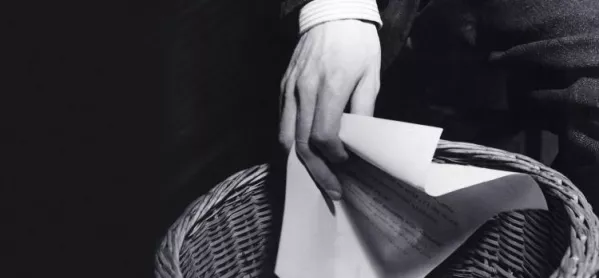It’s a new year and a new term, so out with the old and in with the new, yes?
Except, of course, in education we’re not really celebrating a new year, just a nice holiday. Our new year happens in September when it is far more appropriate to be rejuvenating our practice. We set up the year with a strategic plan based on our self-evaluation and priorities; we share the plan, we invest in it… surely, one term in, we’re not chucking it in the bin to start afresh?
The problem I have with new year’s resolutions is that they’re mostly about doing something new - something we feel we should be doing - like eating kale or doing yoga. And often we return to school after Christmas with this same mindset. We have been on Twitter, we’ve read edu-books, we’ve had time to catch our breath and now, as we return to school, we want to do more things. Exciting things.
But, don’t.
Instead, I would like to advocate stopping as many things as you can this term and not introducing new things, even if they seem like a really good idea.
Simply focus on the core business of teaching and learning and making that as easy and effective as you can. Do not exhaust yourself, your students or your staff by trying something new and glittery. Just because it works somewhere else, or in a book, doesn’t mean it’ll work for you.
‘Cut unnecessary workload’
A colleague of mine once spent three days of her Christmas holiday days at school, creating a room of interactive displays that would have won a Pinterest award. The children were intrigued for an hour maybe, and she was exhausted (and also fairly resentful).
Similarly, I know of one school that tried to change its approach to target-setting in January. Staff got half an Inset day on it, students received a 20-minute assembly. But all it did was confuse the entire community and devour time that should have been spent actually getting students the grades they deserved. In the rush to implement something new, something deemed “effective” at the “outstanding” school down the road, this school had taken a huge step backwards.
So, what can you cut? Cut unnecessary or unhelpful marking. Cut work that simply fills time rather than moves students on. Cut meetings for the sake of having them or fulfilling an agenda - disaggregate the time so people can go and make the differences we need them to.
Cut anything that will not certainly impact positively on learning or wellbeing. I’d even stop making that packed lunch the night before; go to bed earlier instead and eat lunch in the canteen with the kids - the portion control is incredible, and everything meets exacting nutritional standards.
Mostly, as you start the new term, avoid anything you know you can’t sustain - it will exhaust you and it will knock your confidence; and what we need for the weeks ahead is rested and determined professionals doing what they do best.
Keziah is head at Q3 Academy Tipton. She is a co-founder and national leader of #WomenEd and a member of the Headteachers’ Round Table

